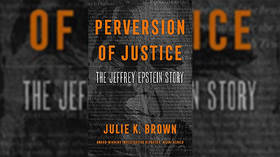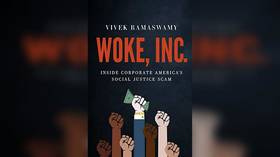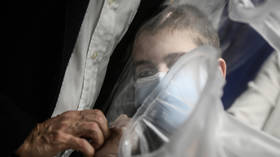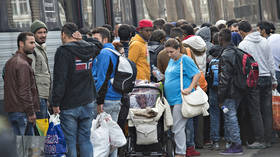A new book, ‘The Transgender Issue’, is a tale of rampant victimhood that views straight white people as reactionary oddities
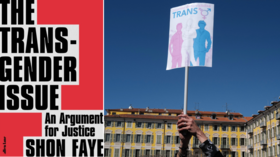
Author Shon Faye sees issues only through a trans prism and piles on the intersectional woes, blaming EVERYONE ELSE for the problems faced by childless trans people, prisoners, migrants, sex workers and gender-swapping teens.
Over the past week, I’ve been working on a new family game to be played around the dining table, based loosely on the popular wood block tower challenge of Jenga (although my idea adds an exciting twist all under a new name, of course). It’s called Genda™.
The tower is assembled from familiar blocks, but this time, each one bears the label of a particular identity commonly addressed by the supporters of critical theory. There’s a huge selection of common terminology used in this field, all centred around building a tower of grievance, underpinned by victimhood. So there will be ‘person of colour’, ‘disabled’, ‘migrant’, ‘unskilled worker’ and, of course, ‘transgender’.
Also on rt.com Trans activists will HATE Helen Joyce’s shocking new book as it dismantles their false ideology piece by pieceThen, as the game progresses and each player alternately withdraws a block, claiming that identity for themselves amid their stack of other identities, the tower will eventually become less stable until it collapses among laughter and shouts of surprise. But here’s the twist: the person who has the most blocks – who has assumed all those various identities – gets to blame everyone else for the disaster they caused and is declared the winner!
Brilliant, yes?
The inspiration came from a new book by campaigning transgender author Shon Faye entitled ‘The Transgender Issue: An Argument for Justice’ in which the former lawyer views the world through a trans prism, finding victimhood everywhere that most of us, apparently, either ignore or are just too (insert pet grievance here)-phobic to even consider.
The book is not the usual turgid critical theory, and hugely ambitious in its scope. But the one issue that really stands out for anyone with the inclination to tackle it is that, while Faye addresses the marginalised, the struggling and the impoverished, she largely ignores or simply discounts those members of society who have most at stake in the transgender debate: women. Cis women, or cis men for that case, are viewed as reactionary oddities, out of touch with the transgender world and too burdened by white, middle-class privilege to see how things really are. At least that’s the impression I was left with.
To Faye, everything is seen as trans-centric: history, economic opportunity, race, migration, gender identity, the prison system, healthcare... the list goes on and on. All those troubles used to construct a mighty tower of misery.
Of course, the reader is under no misunderstanding about where Faye is coming from here. As a fully signed up member of the gender gestapo, there are two key assumptions. The first is that the critical argument around gender identity is indisputable and backed by historical evidence. And that is a person’s declared sex at birth is not hitched to the gender with which they identify, but that the two are different and even fluid.
And her second assumption is the reader’s blanket acceptance of intersectionality. That being trans is one thing, but being black trans is a totally different ball game. That being a black trans sex worker yet another. A black trans sex worker migrant, something else again. And as for a being an imprisoned black trans sex worker migrant? Well, you’ll need a new pen to be ticking all those boxes.
Faye wants prostitution legalised, prisons shut down, puberty blockers doled out to confused adolescents by paediatricians rather than psychiatrists, migrant deportation stopped and, in an ideal world, capitalism crushed.
Because all these, as Faye sees it, are barriers to a trans utopia where transgender people are free to live how they like, as long as they live within the law. Er, hang on... isn’t that most Western democracies? In the UK, gender reassignment is even specified as one of the protected designations under the 2010 Equality Act.
By all means, if you want to talk about police brutality, about the horrors of the prison system, about immigration, about egg and sperm storage costs, about homelessness and the perils of working as a prostitute, then let’s have those discussions.
But let’s make them about everybody. Because the problem with Shon Faye’s crusade for transgender justice is that it’s so exclusive. Trans only. White, straight, middle-class? Get out! The irony is that, until the ‘argument for justice’ is couched in terms those very people feel confident in discussing, and until they believe they’re being listened to, then not much is going to change.
This might not bother Faye too much because, after all, while this book might just be another transgender manifesto railing against the patriarchy, the author knows the progressive liberal audience simply can’t get enough of this schtick.
And judging by the scope of this effort, it won’t be long before Faye knocks out a follow-up. Ker-ching!
Like this story? Share it with a friend!
The statements, views and opinions expressed in this column are solely those of the author and do not necessarily represent those of RT.

